MercoPress. South Atlantic News Agency
Tag: British Antarctic Survey (BAS)
-
Friday, February 23rd 2018 - 11:20 UTC
BAS team leaves Falklands to explore Antarctica marine ecosystem hidden for 120.000 years

A team of international scientists led by the British Antarctic Survey set off on Wednesday to explore a mysterious marine ecosystem that has lain hidden under an ice shelf for up to 120,000 years.
-
Wednesday, January 10th 2018 - 08:09 UTC
Eastern Falkland Plateau to be surveyed by state of the art scientific research vessel
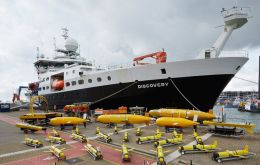
The RRS Discovery arrived on Tuesday in Chile's extreme south port of Punta Arenas in advance of her next research expedition, to undertake seismic survey and piston coring operations in the eastern Falkland Plateau region of the Sub-Antarctic Southwest Atlantic Ocean.
-
Tuesday, October 10th 2017 - 02:20 UTC
New map of South Georgia by British Antarctic Survey unveiled

A team of cartographers at British Antarctic Survey (BAS) has re-produced a high-resolution updated map of the sub-Antarctic island of South Georgia. The island, situated at 37°W 54°10’S is a haven for wildlife, a centre for wildlife and fisheries research and famous for the epic voyage by Sir Ernest Shackleton and his men just over a century ago.
-
Sunday, May 14th 2017 - 00:03 UTC
UK/Uruguay confirm Antarctic cooperation with Montevideo visit of two BAS research vessels
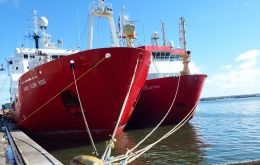
Two British scientific research vessels coincided in Montevideo in early May at the end of the Antarctic season, in their way back to Southampton. Icebreaker RRS Shackleton and RRS James Clark Ross with sophisticated scientific research equipment and tens of experts in different disciplines spent months in Antarctica and returned to Montevideo, a traditional call port the British Antarctic Survey, BAS.
-
Friday, March 10th 2017 - 07:21 UTC
BAS scientific research survey of South Georgia fish resources
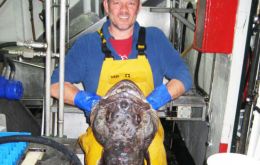
Every two years BAS leads a scientific research survey of the fish resources on behalf of the Government of South Georgia and South Sandwich Islands. This time Dr. Mark Belchier from BAS was head of the team of experts that carried out the survey.
-
Monday, February 20th 2017 - 21:27 UTC
South Georgia gentoo penguins feed preferably on krill, shows 22 year BAS study
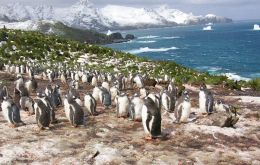
The longest and most comprehensive study to date of what penguins eat is published this month. The study, published in the journal Marine Biology, examines the diets of gentoo penguins (Pygoscelis papua) at Bird Island, South Georgia over a 22 year period and is part of a project investigating the Southern Ocean ecosystem and its response to change
-
Thursday, January 19th 2017 - 20:43 UTC
BAS will shut down Antarctica's Halley VI in winter because of ice shelf crack

British Antarctic Survey (BAS) has decided not to winter at Halley VI Research Station for safety reasons. The station, which is located on the floating Brunt Ice Shelf in Antarctica, will shut down between March and November 2017.
-
Wednesday, January 18th 2017 - 12:05 UTC
HMS Protector recovers equipment abandoned in remote Antarctic island
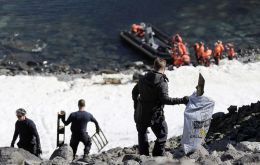
Personnel from HMS Protector have removed equipment abandoned more than 30 years ago on a remote island in Antarctica. The ice patrol ship attempted to remove equipment three years ago from Brabant Island – the second largest island of the Palmer Archipelago within the British Antarctic Territory – but were thwarted by bad weather.
-
Saturday, November 19th 2016 - 12:02 UTC
European scientists in Antarctica trying to locate the oldest ice on Earth
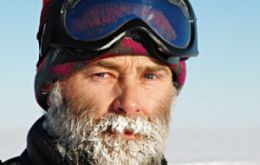
A team of European scientists heads to East Antarctica this month to locate the oldest ice on Earth. The team is part of an EU-funded research consortium from ten European countries whose aim is to search for a suitable site to drill an ice core to capture 1.5 million years of Earth’s climate history.
-
Tuesday, November 1st 2016 - 14:21 UTC
Gentoo penguins proving to be the sturdiest in Antarctica
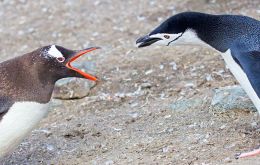
A forty year study on a remote Antarctic island shows that while populations of two penguin species are declining, while a third is increasing. Analysis of census data from Signy Island in the South Orkney Islands reveals that, between 1978 and 2016, the number of chinstrap penguin pairs declined by nearly 70%.
